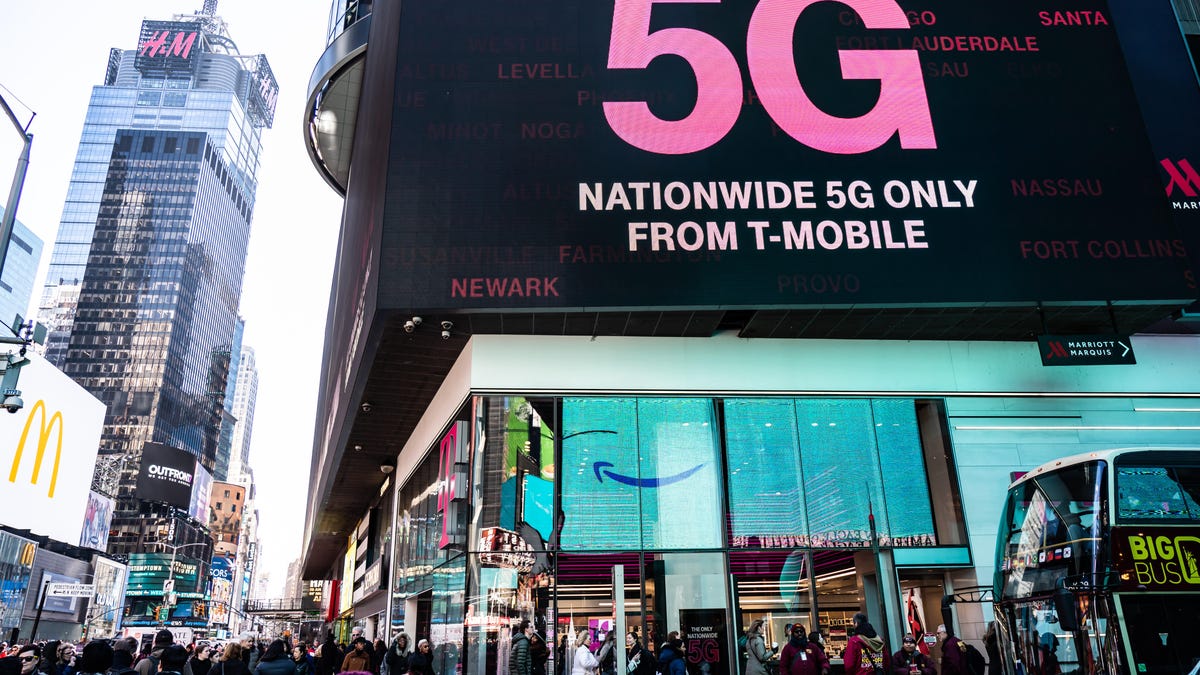5G drives T-Mobile subscriber growth
The company has upped its estimates of new subscribers for the year amid strong demand for its 5G service and phones.

T-Mobile 5G nationwide network advertisement seen in midtown Manhattan.
Demand for 5G service is driving big subscriber growth for T-Mobile, the company said Thursday.
T-Mobile reported that it added more monthly-bill-paying phone subscribers than it had expected during the second quarter of 2021. Demand for its 5G wireless service and devices was the driver, the company said.
The company also attributed the boost in wireless subscribers to its stores reopening as the country began emerging from COVID restrictions. As a result, T-Mobile said, it's increasing its estimates for yearly growth in subscribers. The company said in a press release that it now expects to add a total of between 5 million and 5.3 million postpaid or monthly wireless subscribers in 2021. That's compared with its prior forecast of 4.4 million to 4.9 million.
For the second quarter, the company added 627,000 postpaid phone subscribers. For context, Verizon reported last week that it had added 528,000 postpaid customers across its consumer and business divisions, of which 275,000 were postpaid phone users. Postpaid accounts, belonging to customers who pay their bills at the end of the month, are valued more highly by the investment community as a key metric for success. Meanwhile, AT&T reported last week that it added 789,000 net postpaid phone and 1.16 million total postpaid customers during the same period.
T-Mobile, which a year ago completed its acquisition of Sprint, is in the enviable position of having the strongest portfolio of midband airwaves that can be used for 5G deployment in the industry. This has put it in good shape to deliver on promises of very high-speed 5G networks and good coverage, especially as more people look to 5G to help them connect while working from home and attending school remotely. While T-Mobile's 4G network often performed well in speed tests, it lacked sufficient network coverage. This made it difficult to compete with rivals AT&T and Verizon.
But in 5G and particularly in the use of valuable midband spectrum, which allows 5G signals to travel over longer distances, T-Mobile is an industry leader. The company has at least a year's head start over its rivals and it's trying to capitalize on that. T-Mobile is also getting ready to start a wireless home-internet service that could steal business from cable companies.
As for the financials, T-Mobile reported total revenue for the second quarter rose about 13% to $19.95 billion, compared with estimates of $19.37 billion, according to analysts polled by Yahoo Finance.

